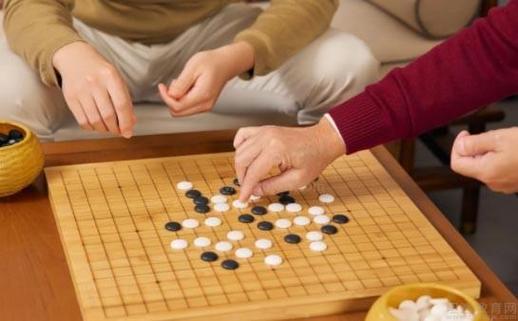围棋时局视频
Title: The Strategic Game: Analysis of Qin Dynasty Go Game Records
During the Qin Dynasty, Go (围棋 wéiqí) was not only a popular pastime but also a strategic game that mirrored the complexities of warfare and governance. The preserved records of Go games from that era provide valuable insights into the strategic thinking and tactics employed by the players. In this analysis, we delve into the intricacies of Qin Dynasty Go game records, examining the strategies, moves, and implications for both the game and its broader historical context.
The Qin Dynasty (221–206 BCE) was a pivotal period in Chinese history marked by significant political, social, and cultural changes. It was characterized by the unification of China under the rule of Qin Shi Huang, who employed ruthless tactics and strategic governance to establish the first centralized imperial state.
Go, a board game of profound complexity, was not merely a recreational activity but a reflection of strategic thinking and military tactics. Its emphasis on territory, influence, and encirclement mirrored the concerns of statesmanship and warfare during the Warring States period.
The preserved Go game records from the Qin Dynasty offer valuable insights into the strategic thinking of the time. While specific records may vary, they typically include details such as the sequence of moves, annotations on key decisions, and the outcome of the game.
Strategic Concepts
Qin Dynasty Go games often revolved around key strategic concepts such as:
- Territorial Expansion: Players sought to expand their influence across the board, mirroring Qin's expansionist policies.
- Encirclement: Surrounding and isolating opponent's stones reflected military encirclement tactics used in warfare.
- Adaptability: Flexibility and adaptability in response to changing board positions mirrored the necessity for strategic flexibility in governance and warfare.

Analysis of Moves
Each move in a Go game holds strategic significance. Moves that aimed at consolidating territory, disrupting opponent's formations, or establishing advantageous positions were common strategies employed by Qin Dynasty players.
Outcome and Implications
The outcome of a Go game often symbolized broader power dynamics and strategic prowess. Victories could signify superior strategic thinking and military acumen, while defeats might highlight weaknesses in one's approach.
While Qin Dynasty Go game records provide valuable historical insights, they also offer lessons applicable to modern strategic thinking:
- LongTerm Vision: Like in Go, successful strategies require a longterm vision and the ability to adapt to changing circumstances.
- Flexibility: The importance of flexibility and adaptability in responding to dynamic situations remains paramount.
- Understanding Opponent: Analyzing opponent's moves and anticipating their strategies is essential for success, both in Go and reallife strategic scenarios.
The study of Qin Dynasty Go game records provides not only a glimpse into ancient recreational activities but also a deeper understanding of strategic thinking during a pivotal period in Chinese history. By analyzing the strategies, moves, and outcomes of these games, we can extract valuable lessons that remain relevant for modernday governance, warfare, and strategic decisionmaking.











